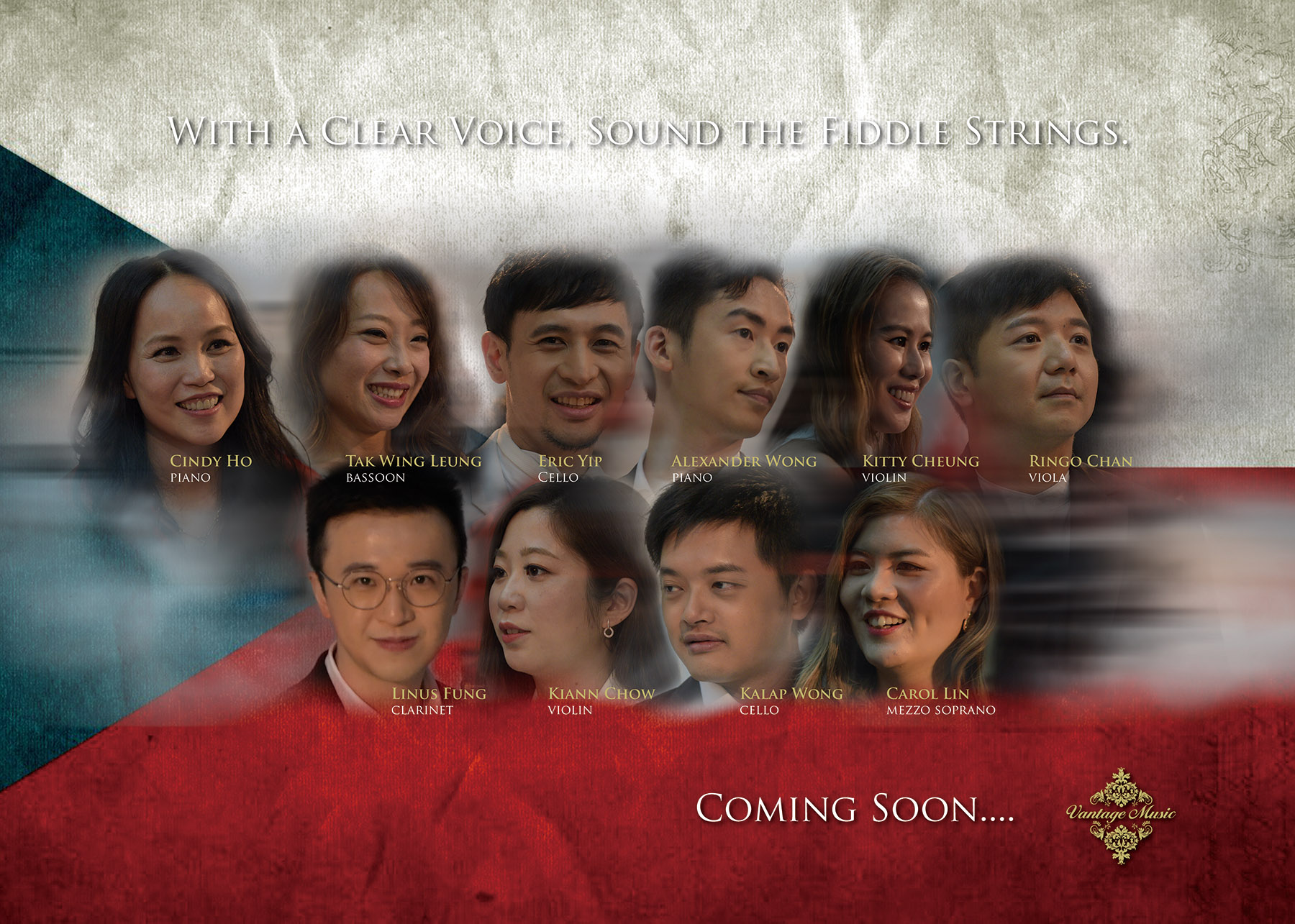With a Clear Voice, Sound the Fiddle Strings
Following “A Splendid Wintry Carpet” , Vantage Music will present another three-concert series in 2022 featuring two influential Czech composers of the late nineteenth and early twentieth century – Dvořák and Janáček.
Highlights of “With a Clear Voice, Sound the Fiddle Strings” will include string quartets by Dvořák and Janáček, a song cycle by Dvořák and other chamber music by Janáček.
Antonín Dvořák (1841–1904) and Leoš Janáček (1854–1928) shared a mutual admiration. Here, a letter Dvořák wrote to Janáček on September 13, 1886, in Vysoká:
Dear Friend,
I received your choral works [four male-voice choruses] and send you my thanks, not only for them, but also for the dedication of which I am very proud and which gives me great pleasure. As soon as I had opened the parcel, I read them through several times and I must admit that in many places, especially with regard to your modulations, I was taken aback and unable to form an opinion. I did not go straight away to the piano, I did not play them; I think I understand a thing better, from a theoretical point of view, by merely reading it. But when I had played them through once, twice, three times, my ear gradually became accustomed and I said to myself: well, after all, it may be possible, but we still might argue about it.
That is, however, unimportant. I think they are a real enrichment of our poor literature (poor in that kind of work). They are original, and what is most important they breathe forth a truly Slavonic atmosphere. They are certainly not “Liedertafel” [“Song Playlist”]. In places, the effect will be enchanting and I hope it will soon be possible to hear them. I congratulate you on your small but at the same time significant composition and hope that you will write many of the kind.
Do not think that I praise you because you have dedicated the work to me. I wanted to tell you at once, but I was afraid to do so. I thought it better to keep my opinion to myself or to tell you later, or to write to you. That is why I read yesterday’s article by Novotný in the “Hlas národa” [a newspaper] with the utmost pleasure. It is just as I would have written it myself and I am glad that I was not disappointed.
Once more my most sincere thanks for such a precious gift and I remain yours ever.
Antonín Dvořák
A couple of years later in an article, A Few Words on Counterpoint, which appeared in the Brno Magazine Hudbní Listy in 1888, Janáček is equally effusive:
I am convinced that Mr Dvořák’s scores are masterly studies in counterpoint. He is not satisfied with the mere harmonization of a single melody in a clear and interesting way; he combines two, three or even five varying themes. I could compare his scores to a good picture: a single idea recurring in many groups of scattered figures, each face bearing its own particular characteristics. Similarly, the pages of Dvořák’s scores are filled with interesting figures which unite to produce a great harmonic thought, without, however, a single one resembling another. A musician grows attached to Dvořák’s scores. What is most important, Dvořák never leaves his figures perpetually in one voice; hardly has one of them claimed our interest, than another rises up for notice. We are kept in constant excitement.
Although Dvořák was only thirteen years Janáček’s senior, they belong to different generations, which is even more evident when considering the comparatively late flowering of Janáček’s creative muse that occurred mostly well into the twentieth century, long after Dvořák had died. Janáček specifically praises the “counterpoint” in Dvořák’s music and the way “figures” are transferred between different voices, both of these Germanic traits of the symphonic tradition that Dvořák had inherited, whilst Dvořák draws attention to the individuality of Janáček’s harmony and its specifically un-Germanic “Slavonic” features. Something has happened from the one composer to the other: an emancipation of a uniquely Czech musical voice from the dominating dynamism of Germanic traditions. This concert series explores this evolution.
Ernest Robin


